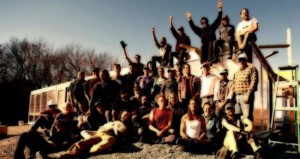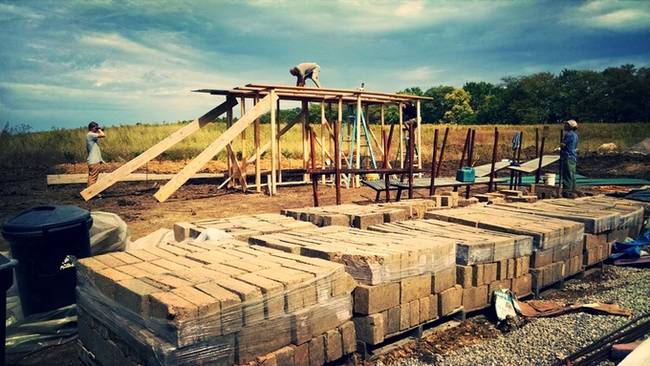This post is an edited collection of my responses to James Corbett’s interview of Marcin Jakubowski and Catarina Mota of the Open Building Institute.
“You wouldn’t download a house, would you?” So goes the tongue-in-cheek rhetorical question from James Corbett in his recent interview of Marcin Jakubowski and Catarina Mota of the Open Building Institute (OBI). The couple’s organization aims to provide free construction plans for modular homes, available on their website. They claim substantially reduced costs versus traditional construction methods. Marcin previously headed Open Source Ecology (OSE), a compendium of open-source plans for various construction machines, which has now been merged with the OBI project.
Too good to be true
I like the idea of do-it-yourself and open-source, but we have to be careful about people seeking to capitalize on this trend just by uttering the right buzzwords. Some big red flags stuck out to me about this couple’s presentation:

1. Free labor – a large part of construction cost is labor, yet they are getting it for free or even charging people for “immersion” workshops – in other words, trainees build their houses. This doesn’t sound sustainable or scalable at all. It also strikes me as a bit like a cult, where a bunch of people put in free work to build up assets for the dear leader. Marcin owns Factor e Farm, which is the site for these model structures. At the very least, it is a misrepresentation to the consumers of the real costs of this process, since presumably the people paying for this “immersion” training expect to eventually be paid for their labor.
2. Asking for funding for a large, ambitious, complex project with ill-defined scope. To fund the OBI goals of an economically transformative construction methodology, Marcin and Catarina held a Kickstarter, raising over $115,000. Unfortunately, this overly-broad goal is a recipe for misaligned expectations and failure to deliver. Every project faces risks, yet their approach multiplies the risk factors of a typical project by orders of magnitude. Better to start small and grow incrementally, before attempting a world-changing goal all at once.

3. Unexplained failure of previous project. Failure is part of business and is a necessary component of learning about market demand, that ultimately can lead to success. However, they do not give an adequate explanation for why their previous project, the brick-making machine, which was the OSE flagship machine, did not get any adoption. The ostensible reason is that they need to build houses in order to make the machines useful. But, they also mentioned that the market price for these devices is $50k and they are producing them for $5k. If this is true, they should have been able to sell them like hotcakes. It doesn’t add up and is not a good sign for pursuing an even bigger project when the smaller project was not completed to expectations.
I’m very wary about these people, their business model doesn’t make sense to me, there are too many unanswered questions, and not enough critical questions posed to them in this interview at least. This modular home / eco home / tiny home fad is a magnet for hucksters spewing the right words.
A history of deception

I have researched Marcin Jakubowski and his organization seems to be a scam under cover of a utopian cult. So far, OSE / OBI seems plagued by failure to deliver, low quality, high turnover of staff, dictatorial management style, and outright fraud. I’ve included the links below, in which these issues are discussed by former volunteers and P2P community members.
“Is there a crisis in Open Source Ecology?”
“Problems with Open Source Ecology: A Perspective” (Google Group discussion thread)
“Open Source Predator: Marcin Jakubowski” (Facebook Group discussion thread)
“Tripping Over Our Bootstraps: Open Source Ecology and the Promise of Liberational Technology”
Marcin Jakubowski trademark registration for “Open Source Ecology”, in his own name – very odd for a supposed “open source” organization.
The ideas of P2P, open-source, DIY, etc. are all good and valuable ideas that should be explored. However, scam artists can also use those buzzwords to take advantage of people. I am very skeptical of these people and will do further research on their project – I feel like I have only scratched the surface.
